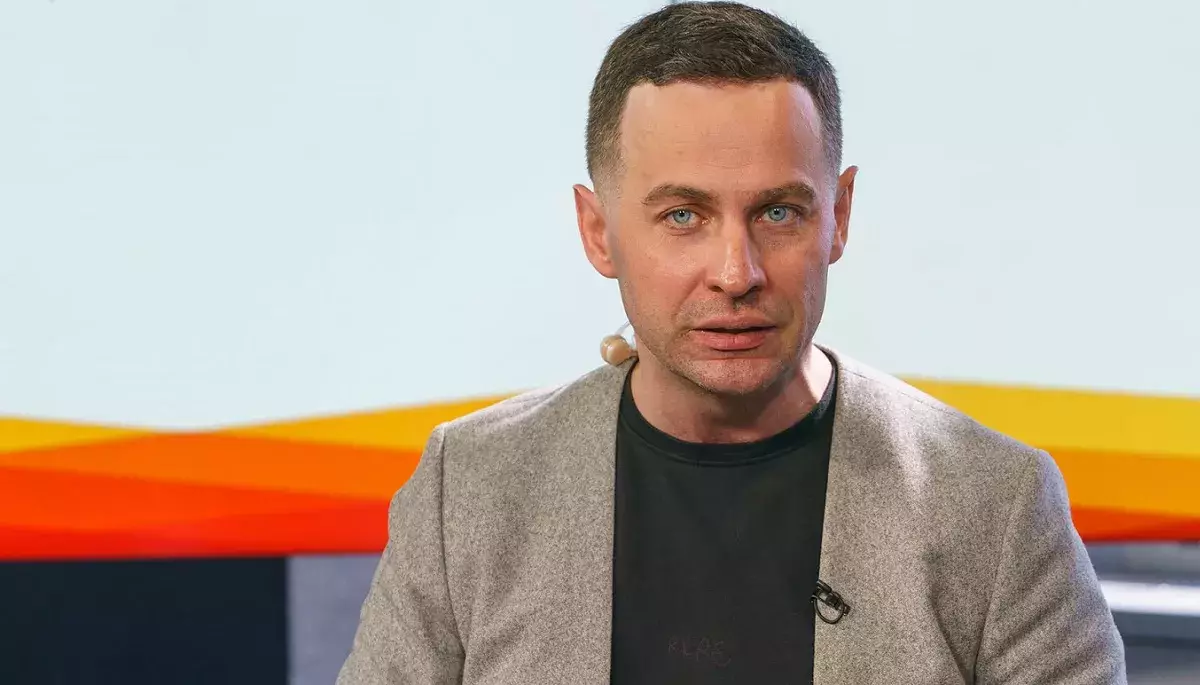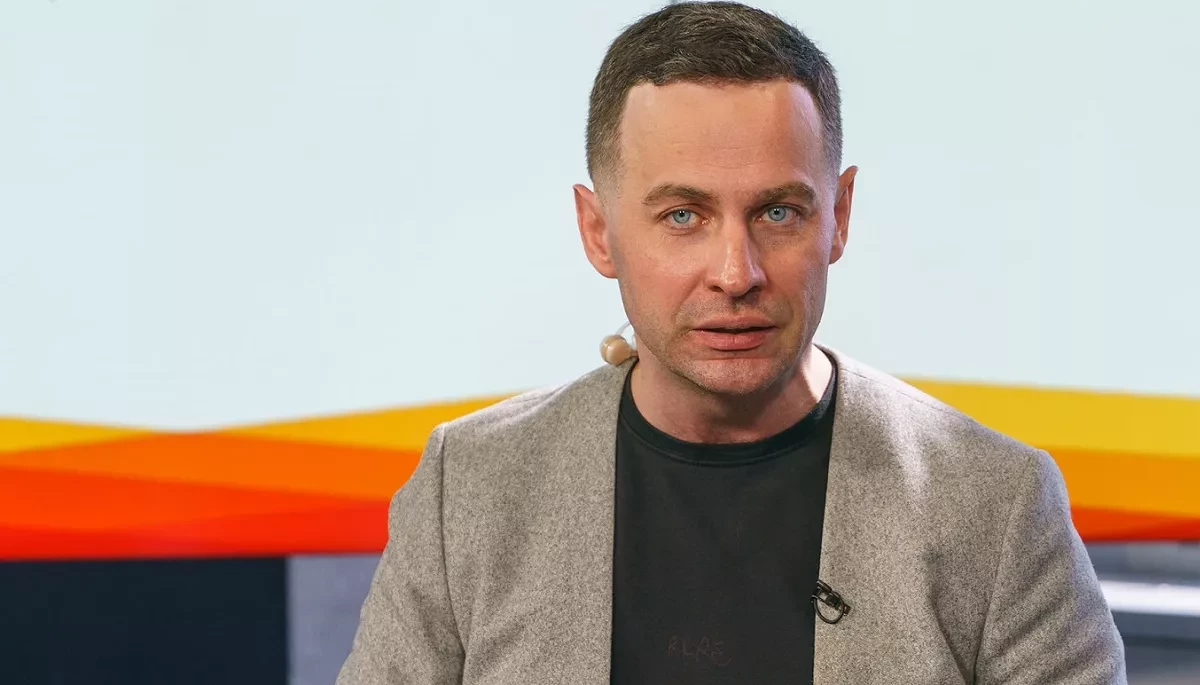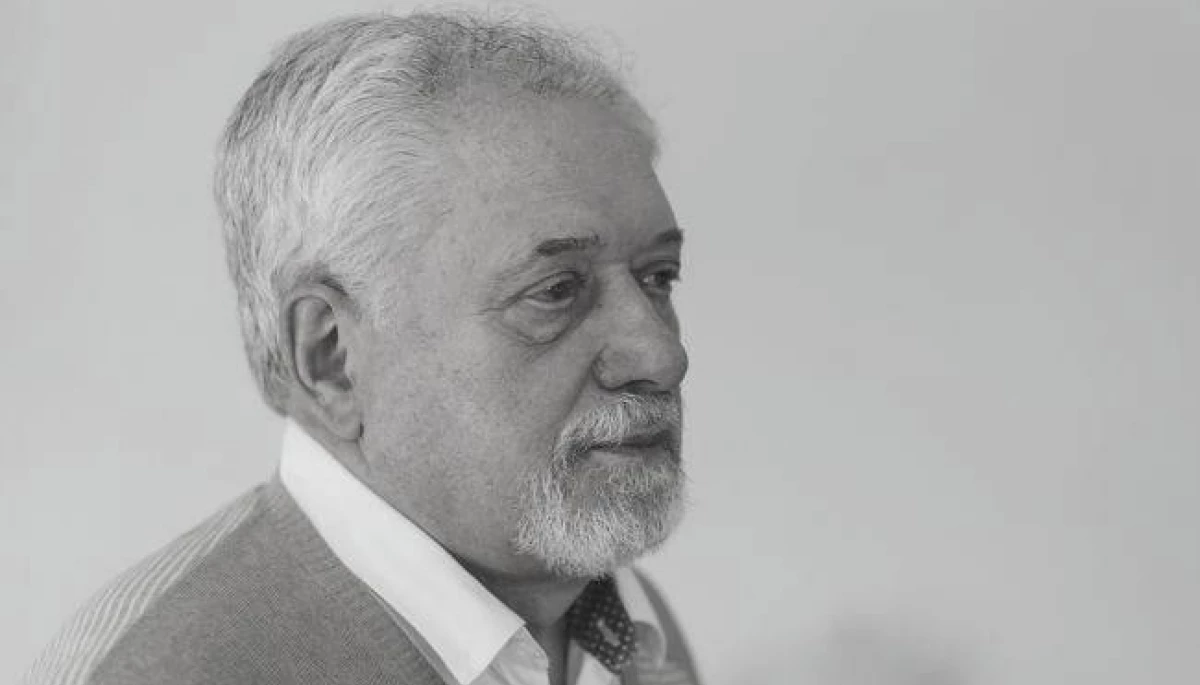
Oleksiy Matsuka, editor-in-chief of "FreeDom": "We do not agree with the conclusion about the "monopoly of one political party on the air of the state channel"
Oleksiy Matsuka, editor-in-chief of "FreeDom": "We do not agree with the conclusion about the "monopoly of one political party on the air of the state channel"


Українською текст читайте тут.
On October 19, "Detector Media" published the monitoring results of guest studios and conversations on the air of the Russian-language telethon of the foreign broadcasting company "FreeDom" for October. We have started doing this monitoring in July and we enter information about all live broadcasts and studio interviews on the air of the foreign broadcasting channel into the database on daily basis. According to the results of September, it became clear that all members of parliament invited to "FreeDom" marathon were members of the "Servant of the People" faction. In October, this trend intensified — in total, thirteen members of parliament were on the air thirty-five times, and all of them represented the "Servant of the People". "Detector Media" asked the editor-in-chief of foreign broadcaster Oleksiy Matsuka to explain such a trend, and received an answer which is published completely unchanged.
The channel's editorial staff has taken note of the monitoring data of the NGO ‘Detector Media’ and would like to thank for the information provided, which is based on these studies, having its own methodology and logic.
It should be noted that prior to the publication of this article on the ‘Detector Media’ website, neither I, as editor-in-chief, nor the state enterprise ‘International broadcasting multimedia platform of Ukraine’, were personally interviewed or sent requests for the questions below, and asked for comments only after they had published their material on their own media platforms.
The material signed by the authors Kseniia Iliuk, Mariana Oliynyk, and Otar Dovzhenko is obviously based on monitoring data, but the authors and those responsible for monitoring are not named, so let's assume that the authors of the article are the authors of the monitoring.
Why is it important to distinguish between the ‘dry’ results of the research team and the more emotionally charged publications based on unbiased research data? Since in journalistic materials one can trace the personal attitude of the authors, and in case the authors of media publications are the authors of the research report, then one can also trace the researcher's own attitude to the object under study. In any case no suspicions arise in the editorial board of the FREEDOM channel, but we additionally stress the necessity of unbiased attitude of research teams to the work of media companies in Ukraine as the basis for improving the quality of products emerging in the media space, first of all such TV channels as FREEDOM or ‘Suspilne’, broadcasted at the expense of budget funds.
The material presented on the website of the NGO ‘Detector Media’ as the author's article contains several theses.
The first is that the marathon broadcast does not maintain a gender-balanced representation of women and men.
Our response: The editorial board agrees with this conclusion and understands that it is necessary to observe the mentioned standard, but this discussion in general exists in the media market of Ukraine, which shows the need to expand it to the level of media managers of key TV channels of the state, and not only the FREEDOM channel. Now we are in a state of real war and with a lack of expertise, which, of course, is not a reason to ignore the specified standard.
The second thesis from the publicist article, which presents the results of the study, states that there is ‘a monopoly by ‘Servant of the People’ on its presence in a foreign broadcasting marathon, which became evident after the ‘Detector Media’ study in August.’
‘To remind, during August, ten people's deputies appeared on the air a total of twenty times, and all of them represented the ‘Servant of the People’ party. It seems that the editors of the foreign broadcasting marathon drew the wrong conclusion from these figures, and instead of a diverse party palette we have twelve members of the ‘Servant of the People’ party and thirty-five appearances on the air in September... We are dealing with the monopoly of one political party on the state channel,’ says the author's material, presented as a monitoring result.
Our response: we agree with the conclusion about the number of parliament representatives with the specified party affiliation. At the same time, the target audience of the TV channel is not voters and does not distinguish the party palette of Ukraine, therefore the channel invites speakers not by party affiliation, but by office affiliation to comment on the topics chosen by the editorial board, for example, the head of the Permanent Delegation of Verkhovna Rada of Ukraine to PACE (Mezentseva), chairman of the Foreign Policy Committee (Merezhko), chairman of the Ukrainian Permanent Delegation to the NATO Parliamentary Assembly (Chernev), etc.
However, we do not agree with the conclusion about the ‘monopoly of one political party on the air of the state channel’.
The aim of the international broadcasting channel is to convey Ukraine's official position to audiences, which is voiced primarily by state officials, not by party speakers.
But due to the fact that we face public criticism in the article by ‘Detector Media’ without previous meetings, discussions, explanations of editorial norms and policies of exactly international broadcasting, we also publicly report on the creation of an internal mechanism of control of exactly party representation abroad of those speakers who occupy one or another position on the party ‘quota’.
There is an editorial decision not to title a speaker's party/fractional affiliation if he/she primarily represents a delegation or is the chair of a committee. We will continue to adhere to this internal requirement.
In general, is it reasonable to talk about a monopoly of parties in the air of an international broadcasting channel, the main purpose of which is to counter Russian disinformation and propaganda. Among the countries that are consumers of international broadcasting content, Ukraine does not occupy the top position of views, according to our research. The monitoring recorded 1094 conversations and the number of guests - 522, of which only 12 were representatives of one of the parliamentary factions (which is only 3% of conversations), mostly not titled which political faction they belong to, but exclusively as representatives of Ukraine for the foreign audience. Also, by comparison, according to the researchers, only one military expert, Oleh Zhdanov, rather than a dozen deputies, was represented in almost 2% of conversations. This figure indicates that no party speakers have a monopoly on the TV channel.
In addition, given the chosen communication style of the ‘Detector Media’ with the international broadcasting channel, we also want to know more about the research methodology, because we found certain inaccuracies. For example, Chernev is listed 7 times in the ‘Conversations’ section, but his last name is not in the ‘7’ section in the chart, he is in the ‘8’ section, at the same time Mezentseva is listed 5 times, and her last name is in the chart in the corresponding section. Of course, mistakes or ‘miscommunication’ are possible, so again and again we call on the ‘Detector Media’ for internal direct discussions and communication with such an important tool of information warfare as the Ukrainian international broadcasting channel.
The only monopoly is the promotion of Ukraine's position as a state under current law.
In general, the international broadcasting channel speaks about the position of Ukraine, and is not involved in the internal political discussion of Ukraine, and always our work on the international broadcasting is perceived by the editorial board exactly in the interests of Ukraine, not the party balance. But, taking into account the comments we received, we started an internal editorial discussion about the reaction to such criticism.
I emphasize - on behalf of the FREEDOM TV channel, we invite the authors of this monitoring and other professional researchers to internal discussions and debates, constant communication of an independent audit of content quality. In addition, I invite you to subscribe to the weekly editorial report (https://freedomweekly.substack.com).
The FREEDOM channel should become an effective tool in the fight against Russian propaganda, with a team of professional journalists working on it today, asking the NGO ‘Detector Media’ to consider the context of Ukrainian international broadcasting as a channel that broadcasts abroad and distinguishes its own attitude from that of professional journalists.
From the editors of "Media Detector". The inaccuracy pointed out by Oleksiy Matsuka — seven or eight appearances of People's Deputy from "Servant of the People" Egor Chernev on the air of the marathon within a month — could have arisen during calculations or in the process of visualizing the database, but it does not change the overall picture. All conversations with all guests of the foreign broadcasting marathon are recorded in the database. Soon, we will formalize and publish the methodology of this study and the methodologies of other monitorings of the "Media Detector" NGO, which are published in the corresponding section. As for the reproach that "Detector Media" did not communicate with representatives of "MPIU" regarding the problems outlined in the material, we suggest that you familiarize yourself with the transcript of the meeting of the Verkhovna Rada Committee on Information and Humanitarian Policy, in which a representative of the "Detector Media" NGO participated. In particular, issues related to the presence on the air of the marathon of representatives of only one parliamentary faction were also voiced at the meeting (admittedly, on the monitoring materials for August). In general, we consider publications to be one of the important forms of communication, which gives it a important component of transparency and the possibility of public discussion.












